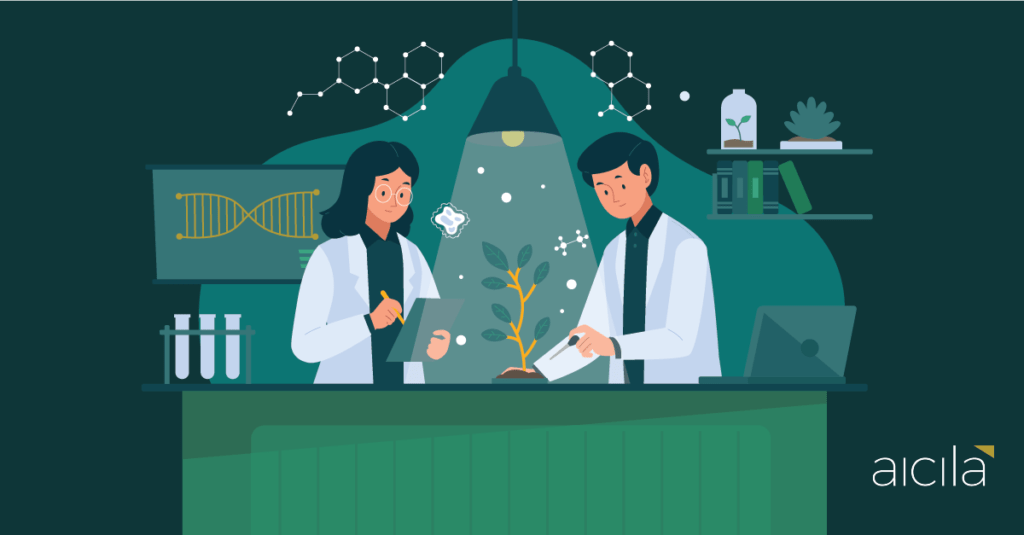Cultivating Tomorrow: Recent Breakthroughs in Plant Sciences Research & Development

The plant sciences industry is undergoing a renaissance, propelled by cutting-edge research and development that promises to revolutionize agriculture, environmental conservation, and sustainable living. In this blog, we’ll explore some of the most exciting recent advancements that are reshaping the landscape of plant sciences.
Precision Agriculture and Smart Farming:
Recent years have witnessed a surge in the integration of technology in agriculture, leading to the emergence of precision agriculture. This approach utilizes advanced sensors, robotics, and data analytics to optimize crop management. From automated planting and harvesting to real-time monitoring of crop health, precision agriculture enhances efficiency, reduces resource wastage, and promotes sustainable farming practices.
CRISPR-Cas9 Gene Editing:
The revolutionary CRISPR-Cas9 gene editing technology has unlocked new possibilities in plant breeding. Scientists can now precisely modify genes to enhance desirable traits such as disease resistance, drought tolerance, and nutritional content. This powerful tool not only accelerates the breeding process but also holds the potential to address global challenges like food security and climate change resilience.
Synthetic Biology and Bioengineered Crops:
Synthetic biology is at the forefront of creating bioengineered crops with enhanced functionalities. Researchers are developing crops that can thrive in challenging environments, require fewer inputs, and provide higher yields. From nitrogen-fixing plants to crops with improved photosynthetic efficiency, synthetic biology offers a toolbox of innovations for sustainable agriculture.
Plant-Based Pharmaceuticals:
Beyond traditional agriculture, plant sciences are contributing to the pharmaceutical industry. Plants are being genetically modified to produce therapeutic proteins and vaccines, offering a cost-effective and scalable alternative to traditional pharmaceutical manufacturing. This approach has the potential to revolutionize the production of medicines and increase accessibility.
Climate-Resilient Crops:
As climate change poses new challenges to global agriculture, researchers are focusing on developing crops that can withstand extreme weather conditions. Heat-tolerant, drought-resistant, and flood-resistant varieties are being bred to ensure food security in the face of a changing climate. These climate-resilient crops contribute to the long-term sustainability of agriculture.
Harnessing Microbiomes for Plant Health:
Understanding the complex interactions between plants and their microbiomes has become a key focus of plant sciences R&D. Harnessing the power of beneficial microbes to enhance nutrient uptake, protect against diseases, and promote overall plant health is a promising avenue for sustainable agriculture. This approach reduces the reliance on chemical inputs and fosters a more holistic and ecological approach to farming.
The recent advancements in research and development within the plant sciences industry signal a transformative era for agriculture and environmental sustainability. From precision farming to gene editing and synthetic biology, these breakthroughs are not only increasing agricultural productivity but also paving the way for a more resilient and environmentally conscious future. As scientists continue to push the boundaries of innovation, the plant sciences industry holds the promise of addressing some of the most pressing challenges facing our planet.

